Thousands of migrants to arrive in Athens as political tensions rise in Europe
Germany has urged counties to accept binding quotas of refugees but the proposal has been rejected by several eastern European states
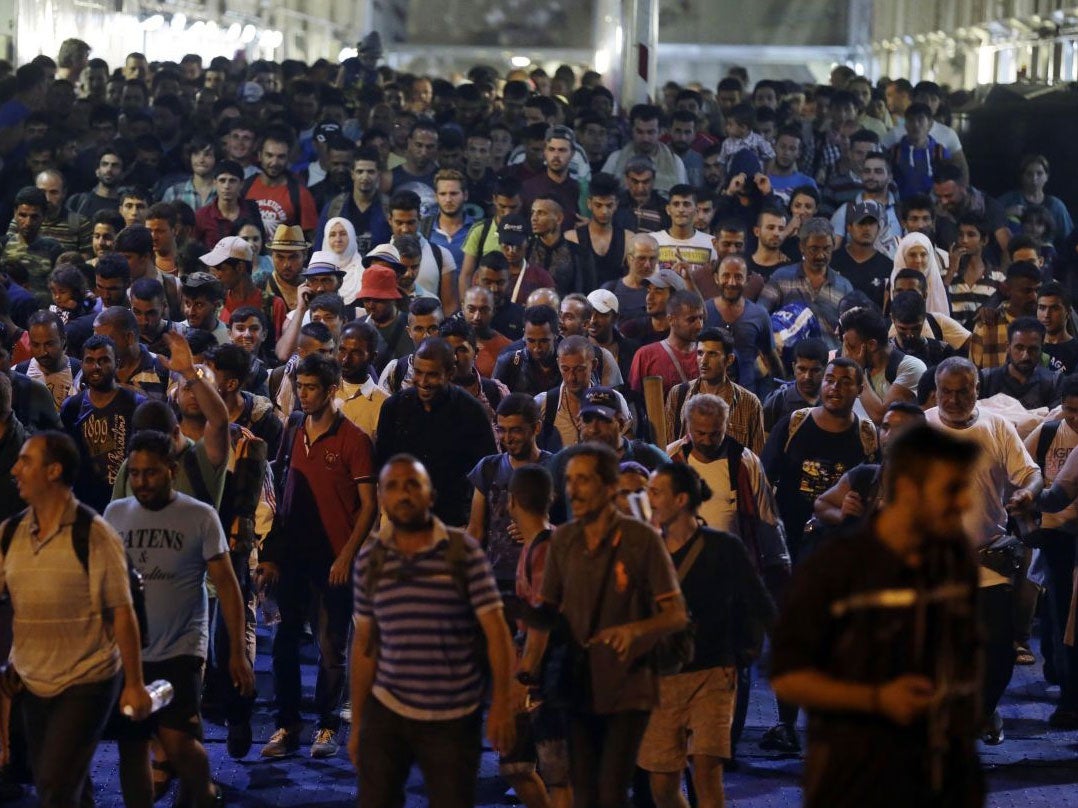
Your support helps us to tell the story
From reproductive rights to climate change to Big Tech, The Independent is on the ground when the story is developing. Whether it's investigating the financials of Elon Musk's pro-Trump PAC or producing our latest documentary, 'The A Word', which shines a light on the American women fighting for reproductive rights, we know how important it is to parse out the facts from the messaging.
At such a critical moment in US history, we need reporters on the ground. Your donation allows us to keep sending journalists to speak to both sides of the story.
The Independent is trusted by Americans across the entire political spectrum. And unlike many other quality news outlets, we choose not to lock Americans out of our reporting and analysis with paywalls. We believe quality journalism should be available to everyone, paid for by those who can afford it.
Your support makes all the difference.Thousands of migrants are expected to arrive in Athens today as political relations between European countries start to crack under the strain of the continuing crisis.
The Greek government has chartered ferries to carry more than 4,000 people from the island of Lesbos.
One ship arrived at Piraeus port with 1,700 people on board late last night and another, carrying 2,500 men, women and children was due to arrive this morning.
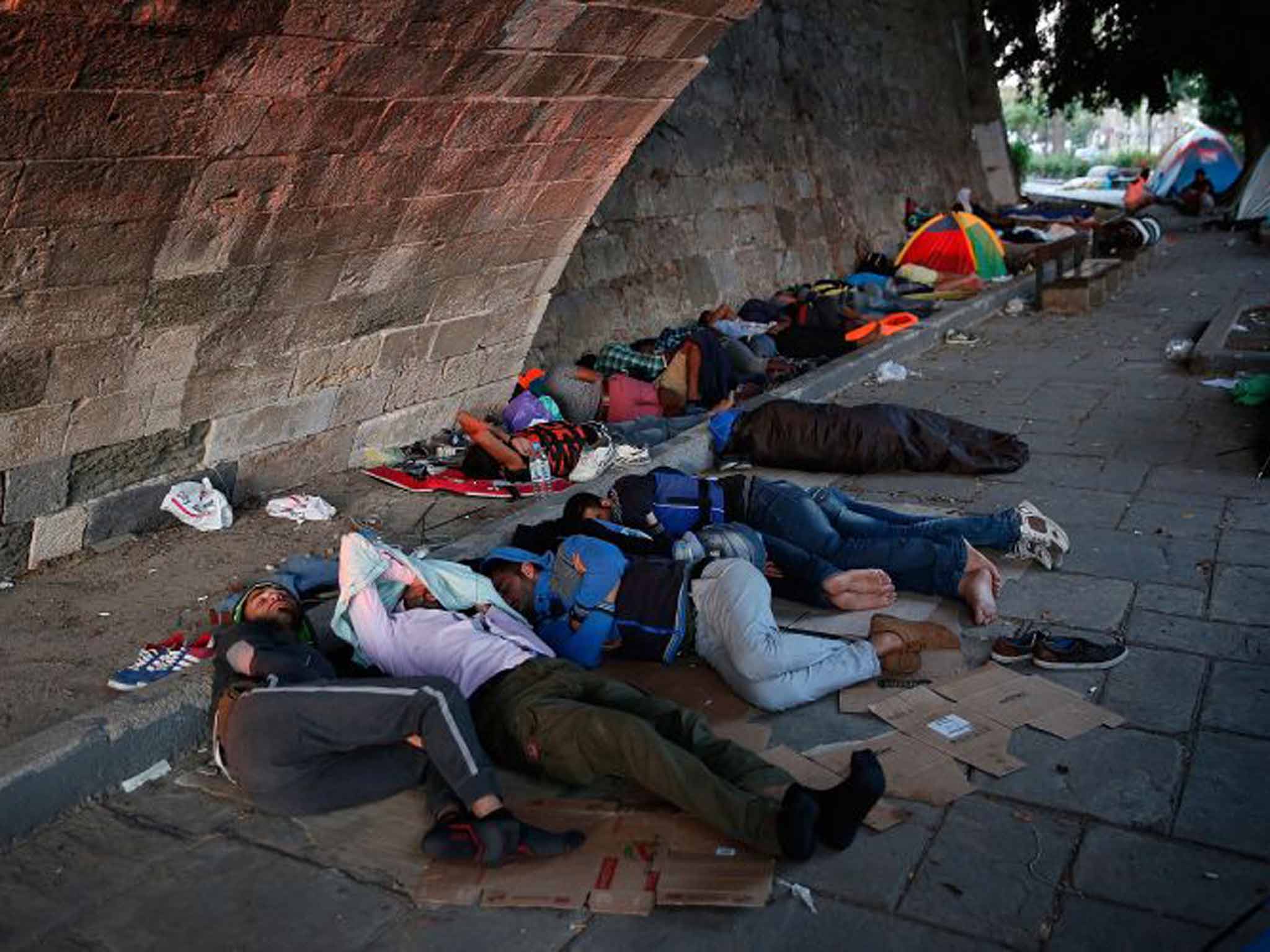
Authorities organised the transfers after passenger ferries were overwhelmed by demand for tickets at the height of the tourist season and local anger grew on the Aegean islands over homeless refugees forced to sleep in parks and on the streets.
As they were being moved, the Greek coast guard rescued 1,200 migrants from the sea and more are expected to arrive today.
More than 160,000 people have arrived in Greece so far this year, including 23,000 last week alone.
The country's government says it lacks the resources to look after that many arrivals but aid groups argue that authorities should be doing more.
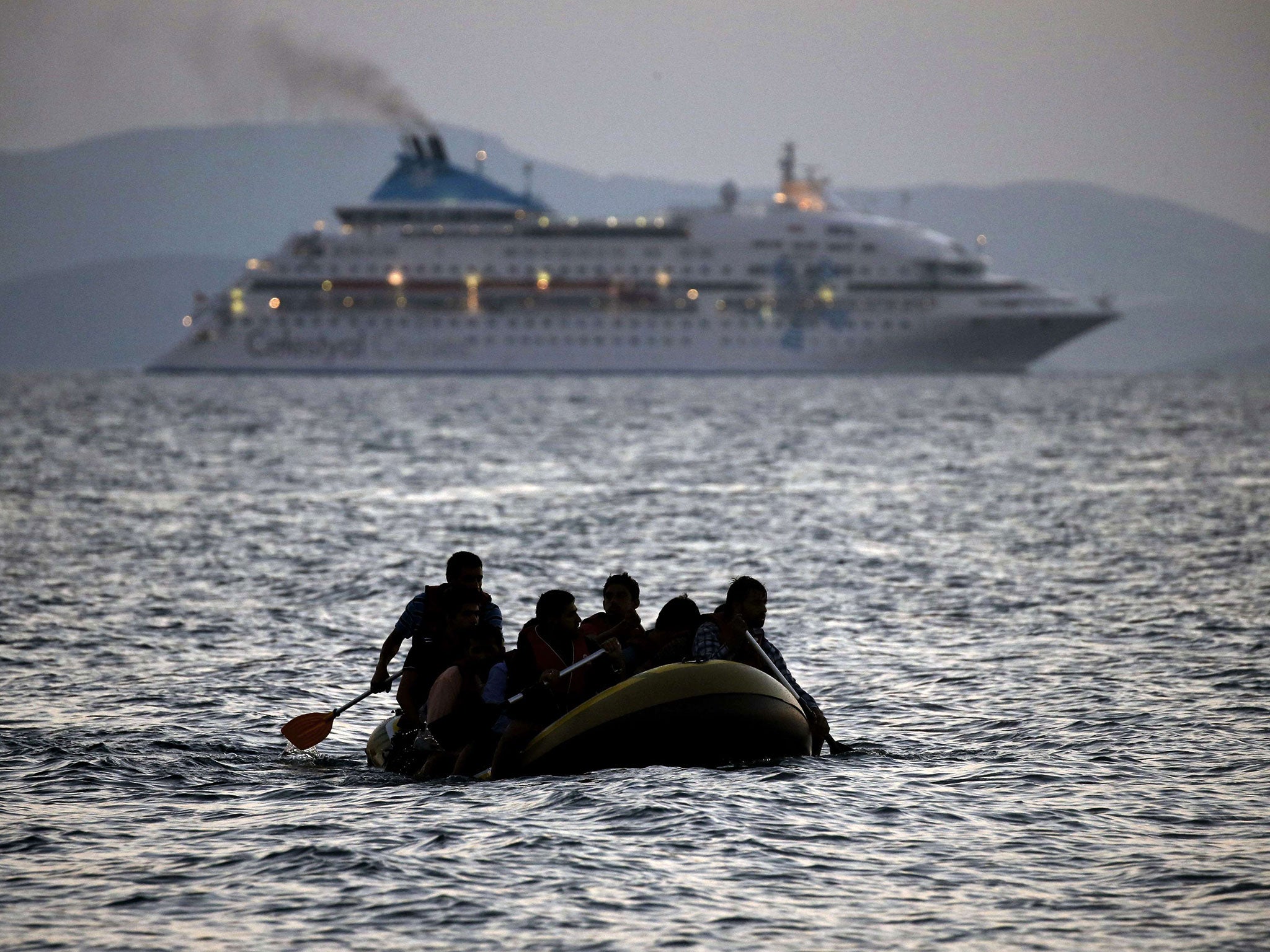
On Tuesday, Greek President Prokopis Pavlopoulos called his French counterpart Francois Hollande to ask that help to ease the situation in Greece be discussed at a senior European level.
Many of those landing in the country will be following the Balkans route to reach northern Europe through countries including Macedonia, Serbia and Hungary, which is building a controversial 100 mile-long fence to keep them out.
Authorities in Budapest, the Hungarian capital, closed the city’s main international railway station yesterday in an effort to stop migrants boarding trains to Germany and Austria.
Thousands of people continued to be stranded outside Keleti station this morning, with police and “citizen patrols” barring their entrance.
More than 150,000 migrants have reached Hungary this year, most coming through the southern border with Serbia.
Many apply for asylum but quickly leave for richer EU countries before their application is processed, meaning they cannot legally travel to Schengen area nations.
Zoltan Kovacs, a spokesperson for the Hungarian government, said authorities in Budapest were only trying to enforce EU laws requiring anyone who wishes to travel within Europe to hold a valid passport and a Schengen visa.
“If we do not succeed in restoring order and legality here, illegal migration - including that of refugees, who are truly in need of protection - will become completely unmanageable,” he added.
Anti-migration rhetoric has been growing among right-wing politicians in the Hungarian government.
Antal Rogan, the parliamentary group leader for the ruling centre-right Fidesz party, claimed on Tuesday that the “the very existence of Christian Europe” was under threat.
“Would we like our grandchildren to grow up in a United European Caliphate? My answer to that is no,” he told the Magyar Idok newspaper.
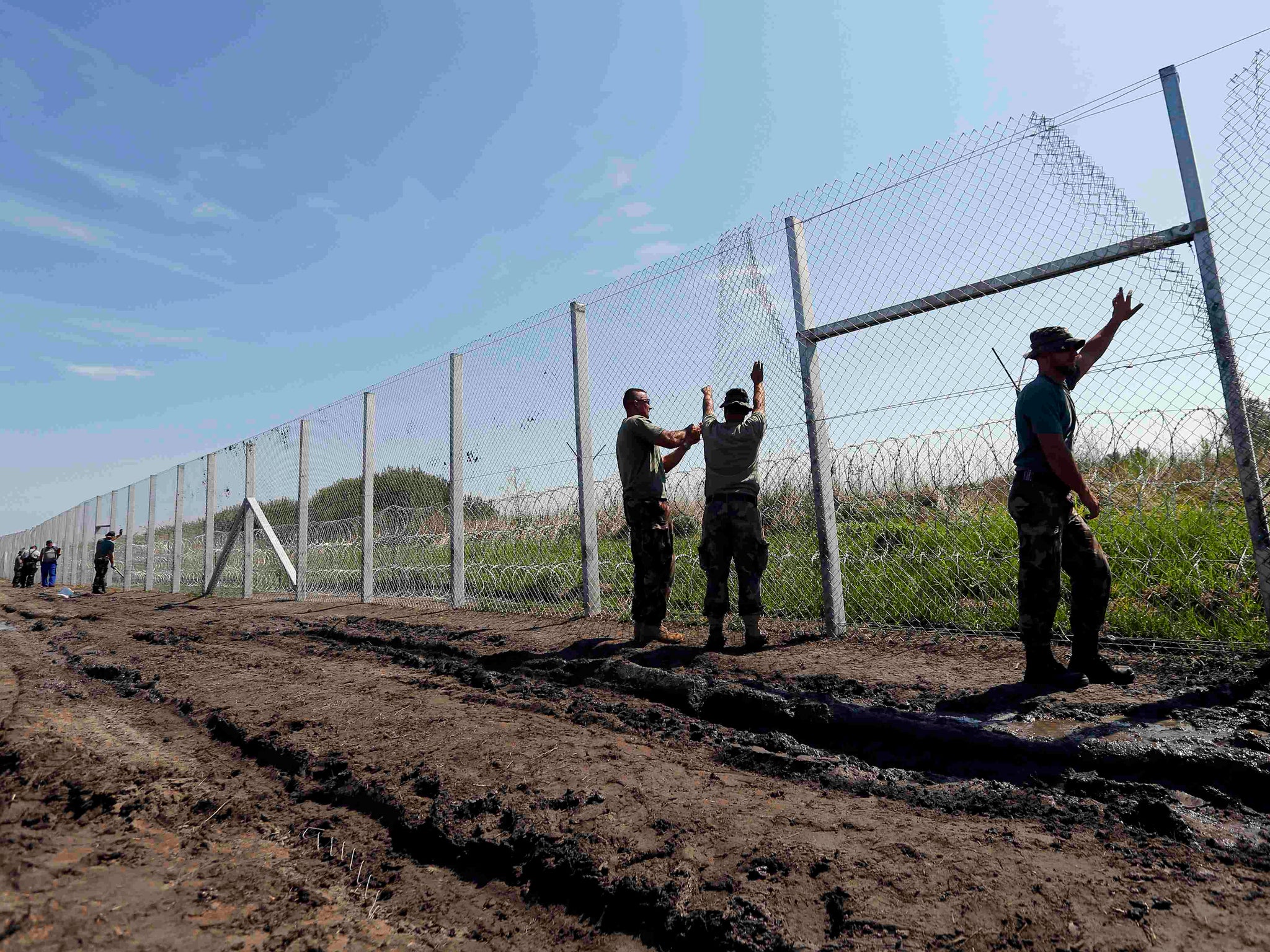
Pressure on nations seeing the largest number of new arrivals in Europe, including Italy and Greece, so-called “transit” countries like Hungary and those like Germany that are the destination for hundreds of thousands of refugees is generating political turmoil across the continent.
Leaders in the Czech Republic, Slovakia and Poland have also voiced their dissatisfaction with demands to accept more refugees and will be meeting with Hungarian representatives on Friday to consolidate their position.
Angela Merkel, the German Chancellor, has repeatedly urged countries to accept a share of migrants according to a quota system but a similar proposal was scrapped in June.
“For those refugees who are being persecuted or have fled war, there should be a fair distribution in Europe based on the economic strength, productivity and the size of each country,” she said yesterday at a joint press conference with Spanish Prime Minister Mariano Rajoy.
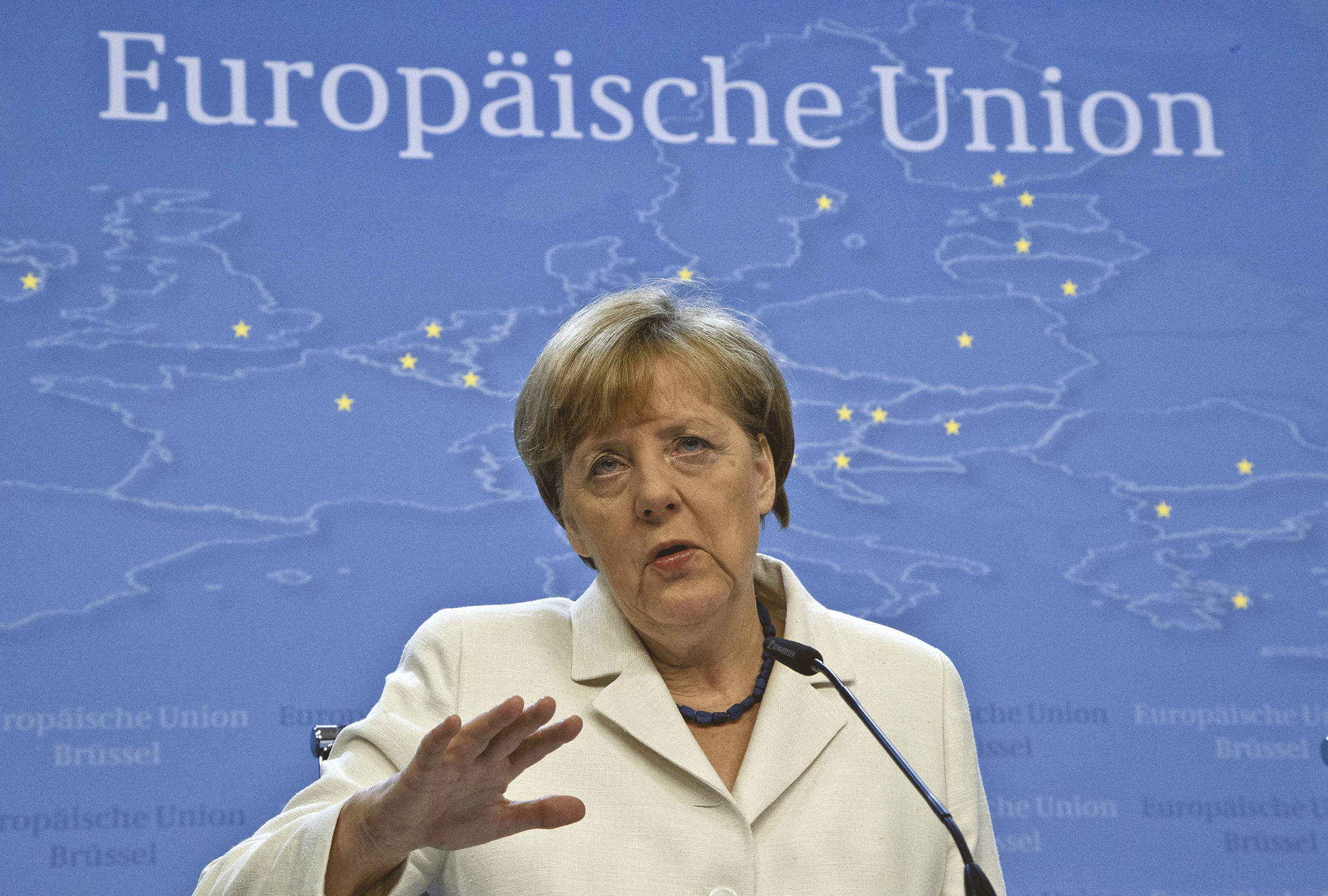
Germany has also criticised Britain’s response to the plans, with a spokesperson for the Chancellor’s CDU/CSU in Germany party telling Radio 4 that there was “not much understanding for the British attitude of saying 'We are not willing to take more refugees and asylum seekers'”.
Yvette Cooper, a Labour leadership candidate and shadow Home Secretary, has called on the Government to open its doors to up to 10,000 from Syria.
She said the failure to offer sanctuary to people trying to escape the “new totalitarianism” of Isis was “immoral” and “cowardly”.
Ukip leader Nigel Farage, however, warned of “an exodus of biblical proportions” and said Britain should offer refugee status to “a few thousand people” from Syria.
Additional reporting by agencies
Join our commenting forum
Join thought-provoking conversations, follow other Independent readers and see their replies
Comments